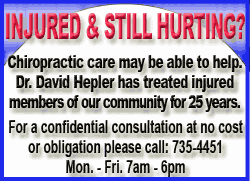| ||||||||||
| ||||||||||
Prevnar protects against seven strains of bacteria that were the most common causes of pneumococcal diseases at the time the vaccine was developed. But lately, those strains have stopped being important causes of illness. Experts have become concerned about dozens of other strains, including some that have flourished and become resistant to antibiotics.
Wyeth has been developing a new vaccine. It is expected to present study data on it at a scientific meeting later this month, and to apply for government licensing approval early next year.
Also on Wednesday, the committee for the first time voted on recommendations about whether anthrax vaccine should be given to children and pregnant women in the event of a terrorist incident.
The committee noted that the vaccine, made by Emergent BioSolutions, is not licensed for use children and has not been studied in pediatric patients. But post-exposure vaccination in children may be considered, depending on the circumstances, the members concluded.
The committee also decided that pregnant women should receive vaccine if they are exposed to inhalation anthrax. They heard the results of a recent study of more than 37,000 infants born to vaccinated military women in 1998 through 2004. It found no increase in birth defects when mothers were vaccinated before they got pregnant or vaccinated late in pregnancy. A small increase in birth defects was reported for women vaccinated during the first-trimester, but it wasn't clear the vaccination caused the problems, CDC officials said.
___
On the Net:
[Associated
Press;
Copyright 2008 The Associated Press. All rights reserved. This material may not be published, broadcast, rewritten or redistributed.

News | Sports | Business | Rural Review | Teaching & Learning | Home and Family | Tourism | Obituaries
Community |
Perspectives
|
Law & Courts |
Leisure Time
|
Spiritual Life |
Health & Fitness |
Teen Scene
Calendar
|
Letters to the Editor